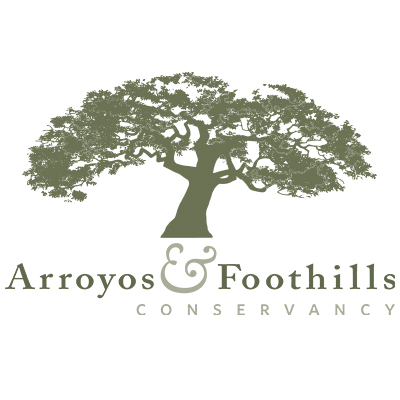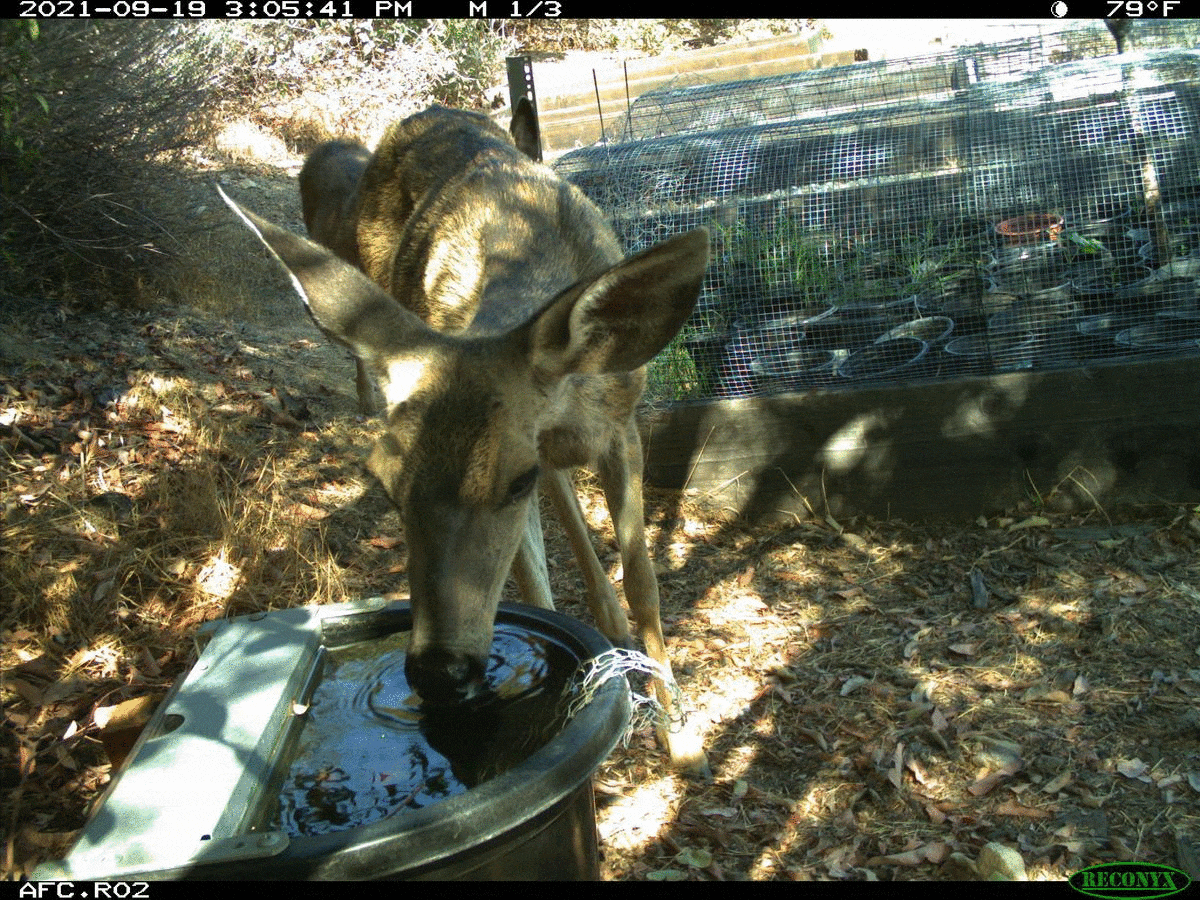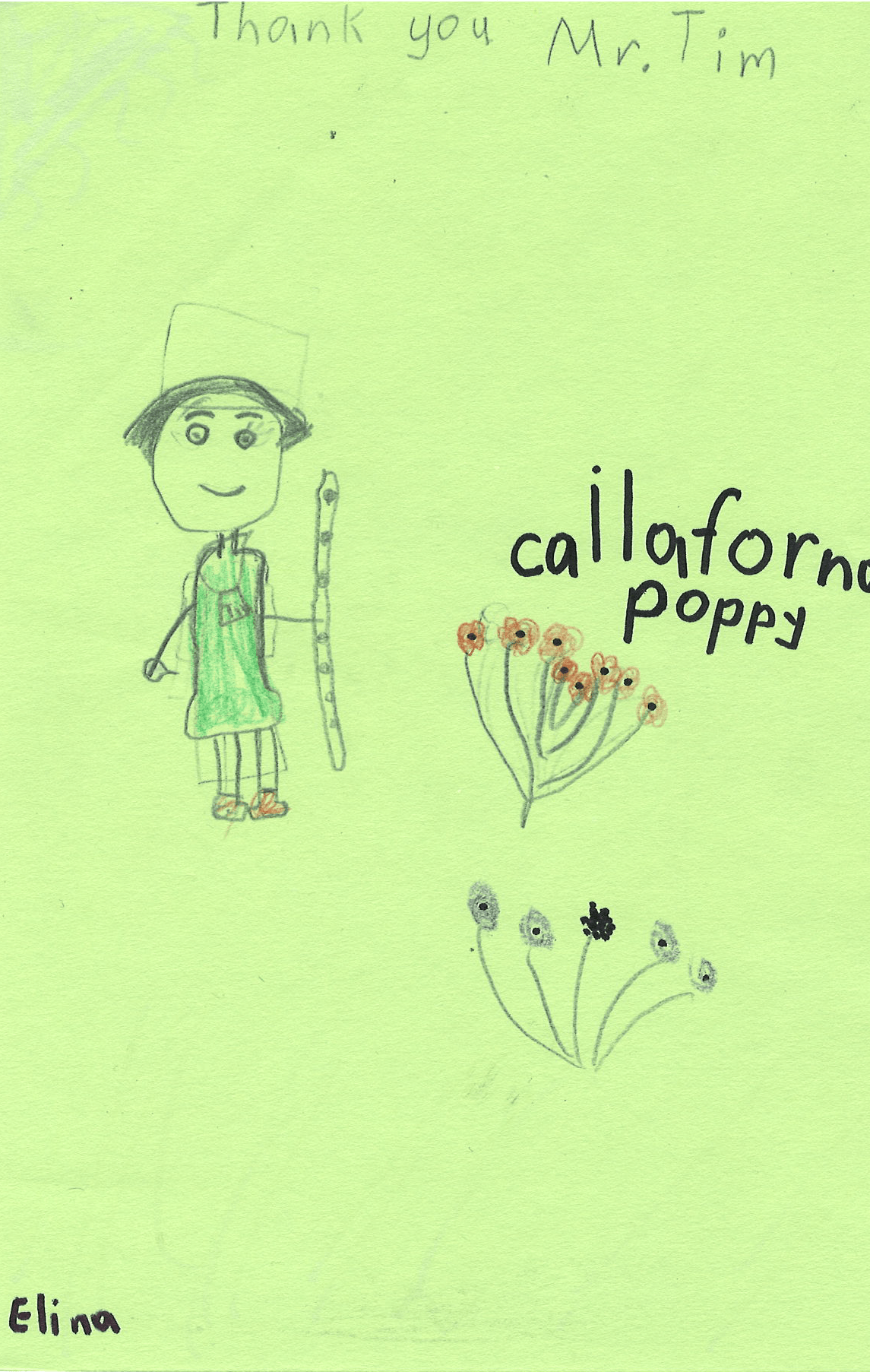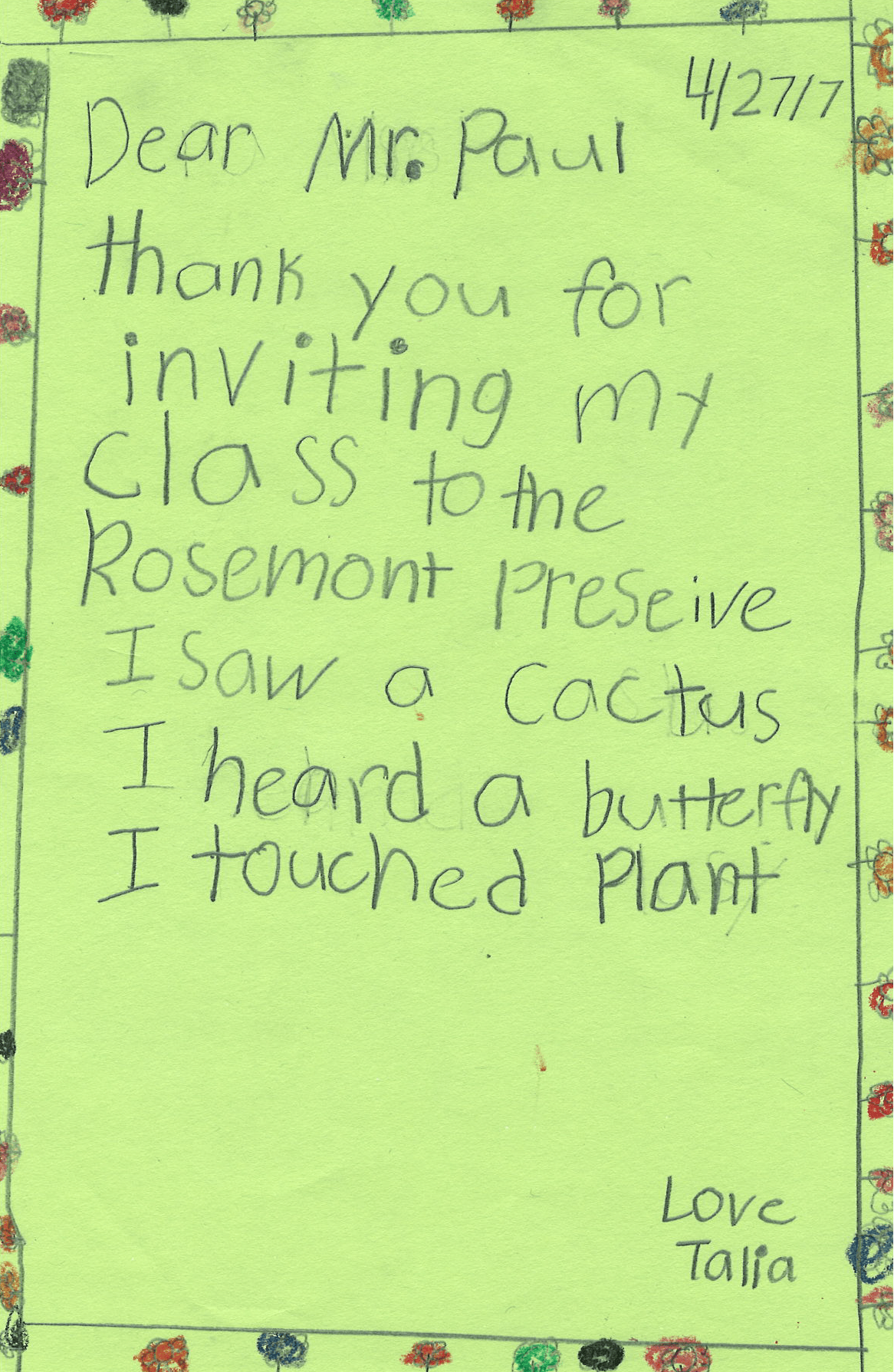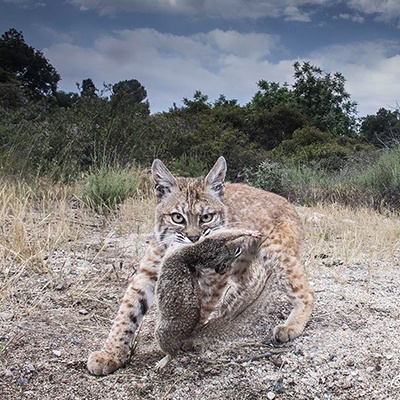Rosemont Preserve Field Trips
The Rosemont Preserve is 7.75 acres of protected wilderness land in La Crescenta. The Arroyos & Foothills Conservancy saved this land from development and turned it into a permanent sanctuary for wildlife and a resource for community programs. The Friends of the Rosemont Preserve were formed to help steward the land and develop free educational programs for the community.
Rosemont Preserve
Field Trip Offerings
Programs at Rosemont Preserve relate to native plants, water conservation and watersheds, Native American and regional California history, geology and more.
- California History
- Plant Adaptations
- Native American Plant Uses
- Geology
- Water Conservation
- Watershed Education
Student Thank You Letters
Native Plants, Local History
Our curriculum focuses on the types of plant adaptations that allow plants to survive and thrive in our Mediterranean climate now plagued with drought. It also teaches about the first people to inhabit our area, the Tongva, who lived in balance with their environment.
Geology
Our geology curriculum teaches about plate tectonics, geology, rock types, watersheds and stormwater runoff. The Rosemont Preserve is tucked into a small watershed (Goss Canyon) in the foothills of the San Gabriel Mountains, making it ideal for watershed education. A small debris basin slows water as it enters a channel which ultimately leads to the Los Angeles River, lending physical features to reference when teaching the concepts of what defines a watershed or drainage basin.
Water Conservation
The Rosemont Preserve provides the perfect natural area to demonstrate the benefits of water conservation. The Preserve contains an outdoor classroom planted with a California native plant garden, equipped with mulch and a drip-irrigation system. This demonstration garden uses 1/7th the amount of water of a conventional yard, and displays the beauty of using water-wise, native plants in our landscaping.
Watershed Education
“A watershed is that area of land, a bounded hydrologic system, within which all living things are inextricably linked by their common water course and where, as humans settled, simple logic demanded that they become part of a community.”
– John Wesley Powell.
The desired learning outcome for students at the Rosemont Preserve is to gain a better understanding of watersheds and how they relate to water use and conservation. Students take away from our programs a sense of connectivity within their watershed – that their watershed is an inextricably linked community.
In learning to take a watershed approach to conservation, and in seeing firsthand the connection between drainage basins from the mountains to the sea, students are able to make a tactile connection between concepts learned in the classroom and their application in the outside world.
Student Learning Outcomes
Students will come away from our programs with a deeper understanding of the conservation concepts of watersheds, soil permeability, groundwater aquifers, aquifer recharge, and the importance of drought tolerant native plants.
Lessons include interdisciplinary exercises in math, geology, ethnobotony, ecology, and local history, and experiments pose questions to encourage critical thinking.
Educational programs at the Rosemont Preserve offer an interdisciplinary approach by including concepts of life and Earth science, math, geology, history, ethnobotany, ecology, and land-use planning into an integrated curriculum.
Grade Level Served
Our field trip educational programs can be modified for all grade levels. We are able to offer an adaptive curriculum to different schools and grade levels based on teacher needs. With a natural canyon watershed, water-wise native plant garden, water tower, debris basin, and concrete flood channel all readily available and in close proximity to our preserve, we are able to demonstrate multiple facets of watershed and water conservation education in a highly adaptable fashion with real-world, tangible examples.
Teachers and Students
Educational field trip programs at the Preserve are customized to correlate with each teacher’s in-class curriculum. Incorporating field trip programs with existing school curriculum will provide students with an opportunity for experiential learning. We use our site and available resources to create meaningful and memorable learning experiences for students in a real world situation. There is no substitute for real world learning where students can touch, smell and hear what they are studying.
This program grew out of a volunteer community group’s love of the outdoors and desire to pass that love on to future generations. Bringing students out to a watershed where they can see the folds in the mountains and envision the water flow is a unique and creative way to bring the study of water and conservation to life. Hands-on activities engage the students in a way not available in their schools.
We plan our curriculum to make an impact on the way these students view the study of science. Our programs encourage students to become citizen scientists and our interdisciplinary approach prepares them to use what they learn to create a positive impact on conservation in their communities both now and in the future.
Thanks to grant support for our field trip program from Edison International and the Helen and Will Webster Family Foundation, we offer transportation and free field trips to AFC properties to schools in Los Angeles County. Field trips are available 9am – 12pm weekday mornings during the school year and week days 9am – 4pm during the summer.
• We develop curricula that are compliant with the STEM Education Act of 2014 taught by our Program Administrator, interns, and volunteer docents. Take a look at applicable Next Generation Science Standards here.
• AFC maintains a Wildlife Movement curriculum for students who cannot access our properties.
• We help plant, maintain and teach from native plant gardens on campuses.
• 2nd and 3rd graders study native plant adaptation, 6th graders use a fault at our Rosemont Preserve to study plate tectonics while high school students do soil and water quality testing.
• All students learn about our remote trigger wildlife camera program.
• Participation in AFC programs fulfills both educational and community service requirements and encourages students to pursue environmental studies and become tomorrow’s land stewards.
Contact Program Director, Auxenia Privett-Mendoza for more information:
[email protected].

